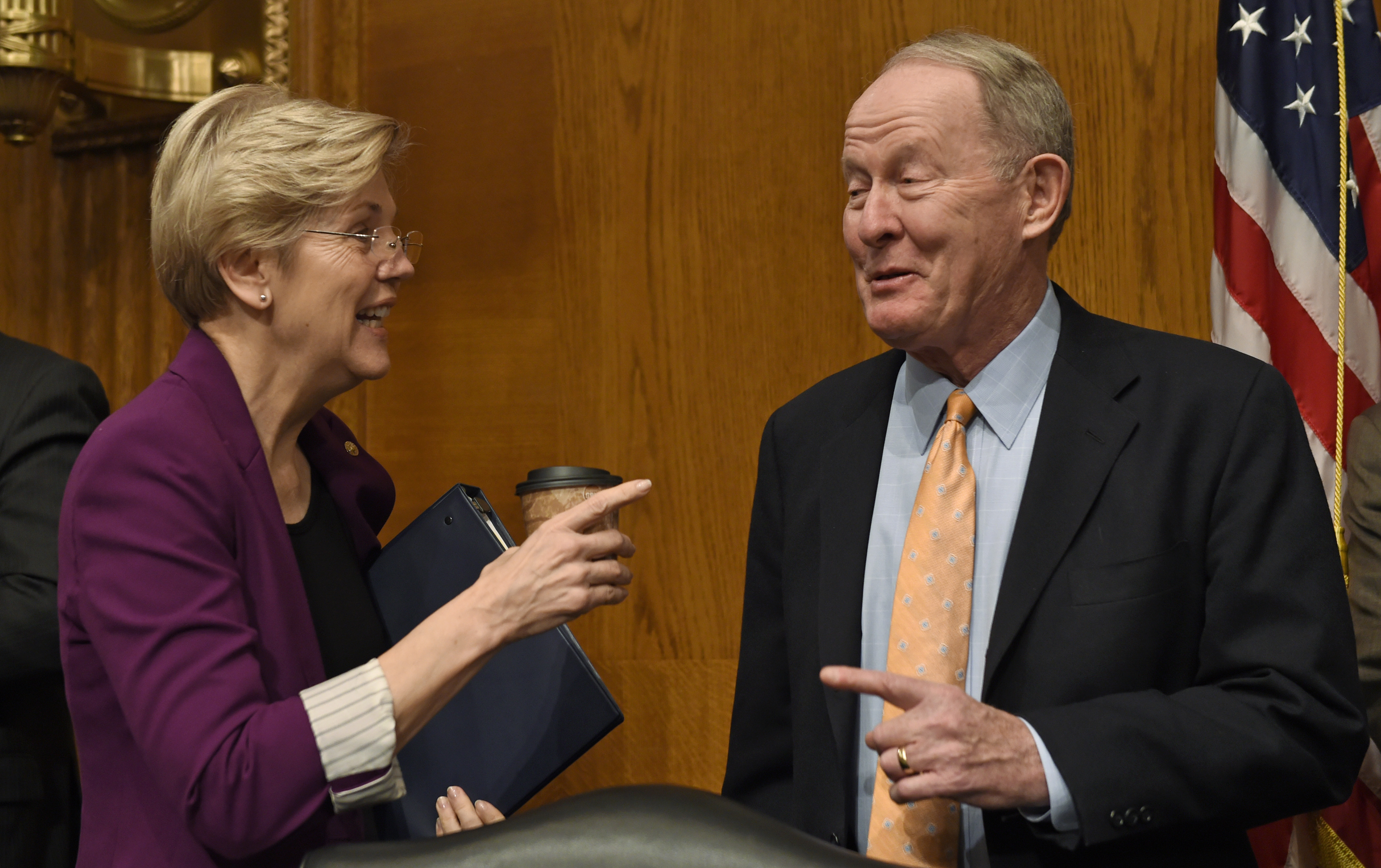
Senate Health, Education, Labor and Pensions Committee Chairman Sen. Lamar Alexander, R-Tenn. talks with committee member Sen. Elizabeth Warren, D-Mass., on Capitol Hill in Washington. The Committee is discussing ways to reauthorize the Higher Education Act. (AP Photo/Susan Walsh).
Republican and Democratic lawmakers Wednesday questioned the merits of alternative learning models, as the Senate Education Committee held a hearing on the reauthorization of the Higher Education Act, the law that governs federal financial student aid.
In a series of hearings, the Committee is exploring new models that could shake up the higher education landscape and provide more high-quality affordable degrees to more people, especially low-income and nontraditional students. On Wednesday, the Committee heard testimony from higher education leaders touting personalized online learning models.
Southern New Hampshire University President Paul LeBlanc recently advised the Education Department on innovation and accreditation, and on Wednesday he encouraged the Committee to expand online competency-based programs like the one at SNHU’s College for America.
“They really are less about what you know and more about what you can do with what you know,” he said. “This helps bridge the gap for employers.”
Earlier: Can Employee Benefits Boost Graduation Rates?
Michael Horn, co-founder and executive director for education programs at the Clayton Christenson Institute, also testified. He cautioned against expanding these programs too quickly before more is known about their quality.
“Incentives do matter,” Horn said. “We haven’t run these [experiments] in states or at the federal government level to know if you’re using government dollars, how does this impact this?”
Lawmakers on both sides of the aisle also debated the role of the federal government in encouraging innovation and subsidizing companies and institutions that offer alternatives to traditional education.
Senator Elizabeth Warren, D-Mass., called on the Committee to protect consumers and preserve federal regulations on new forms of higher education.
“If we’re going to loosen federal regulations, we ought to be sure that the colleges are going to pass those savings on to the students, and it seems that some colleges are not willing to do that,” said Warren.
Wednesday’s testimony was the Senate Education Committee's sixth hearing on reauthorizing the Higher Education Act, which Chairman Lamar Alexander, R-Tennessee, says the Committee plans to pass this fall.
“There are many new learning models that are entering the landscape, thanks to the Internet,” Alexander said. “We need to consider what role they play in our higher education system, and whether federal financial aid ought to be available to students who are learning outside our traditional institutions.”
Related: As Demand for College Degrees Grows, New Models Emerge










